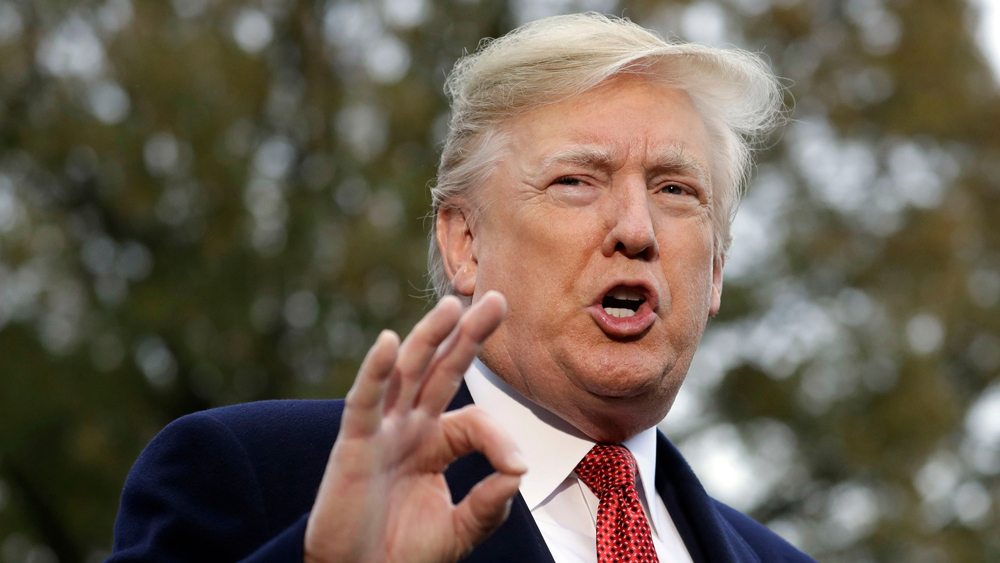Russian Disinformation Campaign Aimed to Aid Trump and Hurt Clinton, Reports Say
By Ted Johnson
LOS ANGELES (Variety.com) – WASHINGTON — A pair of reports released by the Senate Intelligence Committee on Monday show a much more widespread Russian disinformation campaign before and after the 2016 presidential election that sought to impersonate mainstream media organizations and at the same time try to discredit them.
As much of the focus has been on Facebook, Twitter and YouTube, platforms like Instagram, Reddit, Tumblr, and Pinterest also were targeted by the Internet Research Agency, the Russian-linked firm that led the effort to sow discord and division through social media posts, ads, memes, and videos. As Twitter and Facebook came under increased scrutiny in 2017, the IRA shifted a majority of its activity to Instagram last year, according to a report prepared by New Knowledge .
“The goals of active measures are to undermine citizens’ trust in government, exploit societal fractures, create distrust in the information environment, blur the lines between reality and fiction, undermine trust among communities, and erode confidence in the democratic process,” the report concluded. “This campaign pursued all of those objectives with skill and precision.”
New Knowledge and the authors of another report, prepared by the University of Oxford and Graphika, also faulted the platforms for not providing adequate data to dig deeper in studying Russian influence.
“Twitter neglected to provide URL data, including only t.co shortened links, and Facebook provided no account data,” New Knowledge conclude. In some cases, the platforms “did extra work to remove crucial metadata” used in analysis.
“This hints at the possibility of deciding to provide the bare minimum possible to meet the Committee’s request,” the report said.
Twitter, Facebook, and Google appeared not to have turned over complete sets of related data to the Senate Intelligence Committee, New Knowledge said. “Some of what was turned over was in PDF form; other data sets contained extensive duplicates. Each lacked core components that would have provided a fuller and more actionable picture,” the report said.
Some other highlights:
‘Greatest’ effort focused on African American audiences: Some of the most sophisticated efforts targeted African American communities on Facebook and Instagram, focusing on race, Black Lives Matter, and criminal justice. The Internet Research Agency “created a uniquely expansive, interlinked fraudulent Black media ecosystem consisting of their own sites interwoven with authentic Black media and Black-owned small businesses to a degree not seen with other communities or groups.”
Pro-Trump efforts started early in the primaries: The Internet Research Agency had a “clear bias” for Trump that started early in the 2016 presidential campaign. There were an “extremely small set” of posts supporting Rand Paul, but support for Trump was “consistent” throughout the content created to build audiences on the right. “Some of the pages targeting traditionally Left-leaning audiences, such as United Muslims, very occasionally broached the idea that their members might consider Trump as well,” the report said.
‘Comprehensive’ Anti-Hillary Clinton operations: IRA content created for the left and the right was heavy in anti- sentiment. “There was no pro-Clinton content on Facebook or Instagram, aside from a single United Muslims Facebook Event promoting a rally encouraging Muslims to publicly demonstrate in support of Clinton’s candidacy,” according to the report. Even then, the bulk of the content on the page was anti-Clinton.
‘Shape audience perception’: There were significant mentions of Julian Assange, Robert Mueller, and James Comey in an effort to “shape audience perception during a relevant news cycle.” A number of posts expressed support for Assange, including several on Oct. 4, 2016. That is the day before “Roger Stone’s text message history indicated Mr. Stone believed hacked email data would be made public via Wikileaks.”

